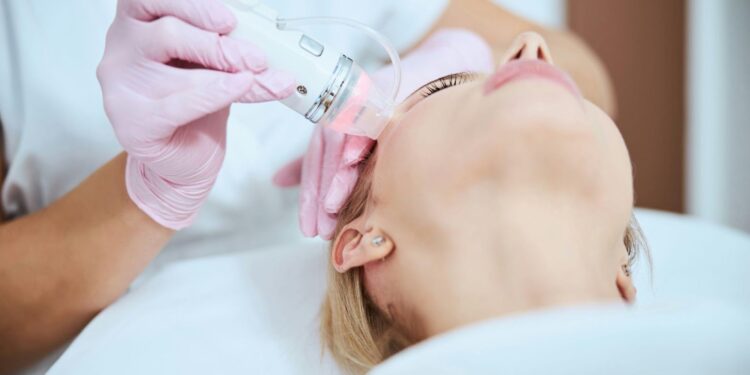Image from Unsplash
In the fast-evolving beauty industry, professional development is no longer a luxury—it’s a necessity for survival and growth. As competition intensifies, client expectations evolve, and new trends emerge almost overnight, beauty professionals must continuously upgrade their skills and business strategies. This surge in demand for specialized training has given rise to advanced education platforms that offer flexible, high-quality learning opportunities. Companies like PLA Pro, known not only for their professional-grade lash and salon supplies but also for their comprehensive training programs, exemplify how modern beauty education empowers salon owners and technicians to remain competitive, innovative, and successful in today’s demanding market.
The New Landscape of Beauty Education
For decades, beauty professionals relied on in-person training, apprenticeships, or trade school programs to develop their expertise. While these traditional methods remain valuable, the rise of digital education platforms has revolutionized how knowledge is delivered and consumed. Today, estheticians, nail technicians, lash artists, and salon owners have instant access to highly specialized training materials from industry leaders, all available on-demand from the comfort of their homes or workspaces.
Online beauty education is no longer a niche trend; it has become a core component of professional development worldwide. Platforms offer pre-recorded video tutorials, live-streamed workshops, interactive webinars, virtual certifications, and full-scale business coaching programs tailored specifically to beauty entrepreneurs. This shift enables professionals at all stages of their careers to continuously refine their techniques while managing their businesses more effectively.
Why Salon Success Depends on Continuous Education
Adapting to Industry Innovation
The beauty industry is one of the fastest-moving sectors globally, with new trends, products, and techniques emerging constantly. From the rise of hybrid lash extensions to advanced nail art technologies and cutting-edge skin treatments, professionals who remain stagnant risk falling behind.
Educational platforms offer real-time access to these advancements, enabling salon owners and technicians to adopt new services that attract clients seeking the latest innovations. As reported by The New York Times, the beauty sector’s rapid innovation cycle makes ongoing training essential for professionals who want to remain competitive.
Meeting Elevated Client Expectations
Today’s clients are savvier than ever. They follow social media influencers, research products extensively, and expect their salon visits to deliver cutting-edge results. Continuous education ensures that professionals meet these elevated expectations with the most current methods and highest standards of care.
Business Growth Through Diversification
Education platforms don’t only teach technical skills; they also offer comprehensive business coaching. Topics like pricing strategies, client retention, marketing, inventory management, and financial planning are increasingly included in modern training packages. This holistic approach equips salon owners to run more profitable, sustainable businesses.
The Impact of Online Platforms on Salon Accessibility and Equality
Image from Unsplash
Digital beauty education has also played a crucial role in democratizing access to career advancement. In the past, geography often limited training opportunities, with professionals in rural or underserved areas facing challenges in attending in-person courses. Online platforms remove these barriers, ensuring that ambitious beauty professionals anywhere in the world can learn from top-tier educators.
For new salon owners or individuals transitioning into the beauty sector, online education offers a cost-effective alternative to lengthy and expensive in-person programs. Many platforms offer flexible payment plans, free resources, and mentorship programs that lower entry barriers and promote industry inclusivity.
The Role of Social Media in Beauty Education
The influence of social media has also fueled demand for continuous education. Platforms like Instagram, TikTok, and YouTube have become de facto learning spaces where trends emerge rapidly and visibility can make or break a beauty business. Professionals are expected to master not only their technical skills but also digital branding, client engagement, and personal marketing.
Education platforms that incorporate social media strategy into their curriculum give students a significant edge. They teach professionals how to leverage visual platforms to attract new clients, showcase their work, and position themselves as thought leaders in their local markets.
Navigating Regulatory Requirements and Industry Standards
In addition to skill development and business coaching, responsible education platforms emphasize regulatory compliance and safety protocols. As beauty services often involve close physical contact, strict hygiene standards, product safety, and licensing requirements must be followed.
In the United States, agencies such as the Occupational Safety and Health Administration (OSHA) provide guidelines for safe workplace practices in salons, covering everything from sanitation to chemical handling. High-quality education platforms ensure that professionals remain compliant with these evolving standards, protecting both clients and business owners.
The Psychological Benefits of Lifelong Learning in Beauty Careers
Continuous education offers benefits that go beyond business growth and technical expertise. Salon professionals who commit to ongoing learning report higher levels of job satisfaction, self-confidence, and career longevity. Mastering new skills not only keeps services fresh and exciting but also strengthens professionals’ sense of purpose and personal fulfillment.
Educational communities, like those built through platforms such as PLA Pro, provide emotional support, peer networks, and mentorship, combating the isolation that independent beauty professionals sometimes experience.
Looking Ahead: The Future of Beauty Education
Image from Unsplash
As technology continues to advance, the future of beauty education promises even greater accessibility, personalization, and innovation. Developments like virtual reality (VR) training simulations, AI-powered learning modules, and interactive feedback systems are already being explored by leading education providers.
These emerging technologies will enable beauty professionals to refine complex techniques in hyper-realistic virtual environments, receive instant performance feedback, and access global instructors in ways that were unimaginable only a few years ago.
Furthermore, industry partnerships between product manufacturers, regulatory bodies, and education platforms will likely become more integrated, ensuring that new protocols and innovations are disseminated efficiently across the entire sector.
The beauty industry is evolving at an unprecedented pace, driven by both consumer demand and technological innovation. In this dynamic environment, education platforms like PLA Pro are transforming how beauty professionals learn, grow, and succeed.
By offering comprehensive, accessible, and business-savvy training, these platforms empower salon owners and technicians to not only master their craft but to build sustainable, thriving businesses. For beauty professionals committed to excellence, lifelong education has become not just an option—but a necessity.













